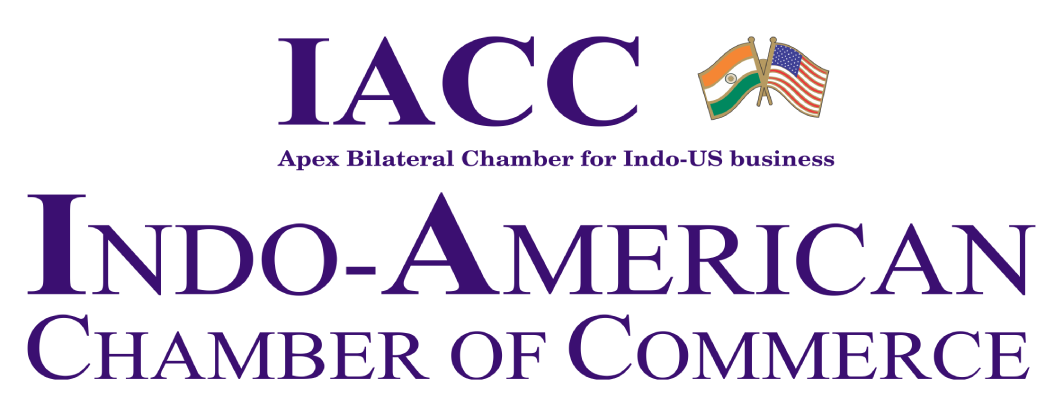[et_pb_section bb_built=”1″ fullwidth=”off” specialty=”off” _builder_version=”3.0.63″ background_image=”https://www.iaccindia.com/wp-content/uploads/2017/07/Elegant_Background-4.jpg” custom_padding=”0px||0px|” parallax_method=”off” background_size=”initial” background_position=”top_center” parallax=”on”][et_pb_row _builder_version=”3.0.63″ background_position_1=”top_left” background_repeat_1=”no-repeat” custom_padding=”||0px|” make_fullwidth=”on” use_custom_gutter=”on” gutter_width=”1″][et_pb_column type=”4_4″][et_pb_text admin_label=”Page Title” _builder_version=”3.0.63″ background_layout=”light” text_orientation=”left” border_style=”solid” module_class=”iacc-pagewidth iacc-header-row”]
About IACC
[/et_pb_text][et_pb_code admin_label=”Breadcrumbs” _builder_version=”3.0.63″ custom_css_main_element=”background-color: rgba(0,0,0,0.35);||padding: 8px 0;” module_class=”iacc-breadcrumb”]<div class="iacc-pagewidth">Home > </div>[/et_pb_code][/et_pb_column][/et_pb_row][/et_pb_section][et_pb_section bb_built=”1″ fullwidth=”off” specialty=”on” _builder_version=”3.0.63″ background_position_1=”top_left” background_repeat_1=”no-repeat” background_position_2=”top_left” background_repeat_2=”no-repeat” use_custom_gutter=”on” gutter_width=”2″ background_color=”#f2f2f2″ padding_top_1=”0px” padding_top_2=”0px” module_class=”iacc_last_section”][et_pb_column type=”3_4″ specialty_columns=”3″][et_pb_row_inner _builder_version=”3.0.63″ background_position_1=”top_left” background_repeat_1=”no-repeat” custom_padding=”0px|||”][et_pb_column_inner type=”4_4″ saved_specialty_column_type=”3_4″][et_pb_text _builder_version=”3.0.71″ background_layout=”light” text_orientation=”left” border_style=”solid”]
‘Rebranding’ exercise to boost its investment-friendly image
Concerned by the steady slide in its status as an investment destination, Maharashtra has taken its first tentative steps towards a major makeover exercise.
To begin with, the state government wants a brand image for itself. Gujarat scored with its “Vibrant Gujarat” branding, Kerala saw a tourist boom after its “God’s Own Country” positioning and Hyderabad’s biotech fortunes soared with the “Genome Valley” campaign. Accordingly, the state government is looking for branding on the lines of “Resurgent Maharashtra” (also considered essential after the state lost Tata Motors’ Nano project to its northern neighbour).
To this end, the state has roped in Ernst & Young (E&Y) to prepare a master plan. E&Y outbid KPMG to win the Rs 1.65 crore contract from Maharashtra Industrial Development Corporation (MIDC).
Sources familiar with the developments say the exercise is considered necessary because Maharashtra has slipped in terms of investment proposals against even smaller states like Chhattisgarh, Jharkhand and Uttarakhand.
According to data from the Department of Industrial Policy & Promotion (DIPP), Maharashtra (3,443), Gujarat (2,369) and Chhattisgarh (1,295) were the leading states in terms of the number of industrial entrepreneur memoranda (IEMs) filed between January 2005 and November 2009. In terms of the value of these investments, however, Maharashtra does not figure in the top three.
The three leading states are Gujarat (Rs 4,84,876 crore), Karnataka (Rs 3,55,536 crore) and Chhattisgarh (Rs 6,52,660 crore). For Maharashtra, the total investment proposals were worth Rs 3,00,837 crore. Maharashtra’s industries minister Rajendra Darda says E&Y’s mandate includes preparing a draft vision document for MIDC for the next 20 years (Vision 2030) and an action plan for the next seven years. The consultancy will also define investment promotion strategies and an action plan for the state, suggest investment promotional and branding plan.
E&Y, which is expected to complete the exercise in 15 months, will also market investment opportunities in specific focus sectors such as port-centric development, textile, pharma, agro & food processing, automotives, IT, solar & renewable energy, education, power, infrastructure (Investment Regions, SEZ).
E&Y’s immediate task would be to advise MIDC on organising the Global Investment Conference in Mumbai scheduled this month. The conference is intended to showcase the strengths and potential of Maharashtra to prospective domestic and overseas investors.
Sunil Chandiramani, national director (advisory services) of E&Y, says there could be a broadbased branding strategy for the state or sub brands for each of its strengths.
Back Maharashtra: Still the preferred zone for big-ticket investments
Rahul Wadke
Date:29/03/2010 URL: http://www.thehindubusinessline.com/2010/03/29/stories/2010032953120600.htm
On a hot afternoon in October 2006, the then Chief Minster, Mr Vilasrao Deshmukh, called a hurried press conference at his bungalow to announce a project investment of $2 billion for creating ‘energy zones’ near Mumbai.
Spread over 300 acres near Mumbai and financed by the Bahrain-based Islamic bank Gulf Finance House, the project was to provide housing and office space for leading energy companies in the world. Zoom to March 2010 and bank’s investment outlay has increased to $10 billion and the scope of the project has expanded to include telecommunications, software and entertainment zones spread over 1,700 acres.
The land has been acquired fully without a single protest from, or litigation by, the villagers.
The ground has been broken and construction has commenced for the zones, which will come up by 2017. Such is the pace of industrial development in the State, big ticket investment are coming in by the hordes.
Ever since the adoption of the liberalisation policy in 1991, among all the States, Maharashtra has attracted the highest number of investment proposals. According to the latest Maharashtra Economic Survey, between August 1991 and August 2009, 15,408 industrial projects, with an investment of Rs 5.58 lakh crore, have been registered with the Centre for setting up industries and mega projects in the State.
By the end of August 2009, of the total registered projects, 6,627 (43 per cent) involving an investment of Rs 1.47 lakh crore (26 per cent) were commissioned generating about 8.36 lakh jobs (30 per cent).
The State had adopted the Special Economic Zone (SEZ) policy with effect from February 10, 2006 and up to November 2009, in all 225 SEZ proposals were received.
Of these, 144 were approved by the Centre (108 formal and 36 in-principle) and 58 were notified. Of the 144 approved SEZs, 59 are information technology and IT-enabled services (ITES), 57 are single-product, 16 are multi-product and 12 are multi services.
IT/ITES industries
To develop IT parks that ensure integrated growth of IT industry and focus on the potential of the growing IT products and telecom industry, the new ‘Information Technology and Information Technology Enabled Services Policy was introduced in 2009. It offered various fiscal incentives to IT/ITES industries, besides non-fiscal incentives such as additional FSI, permitting software industry in residential areas, suitable permissions to develop communication systems and self certifications under labour laws.
Emergence of IT parks has triggered development of integrated infrastructure needed for this industry. These parks are envisaged to be centres of excellence with reference to various infrastructure facilities and overall ambience required for industry. In view of this, 36 public IT parks are established by MIDC and CIDCO.
For getting private participation in creating world-class infrastructure for IT industry, 396 private IT parks have been approved, out of which 70 IT parks have started functioning. These IT parks, with investments of Rs 1,036 crore, have created 1.38 lakh jobs. The remaining 326 IT parks with investments of Rs 6,454 crore have been given letters of intent and are expected to generate 8.6 lakh job opportunities. The private IT Parks are mainly concentrated in Greater Mumbai (123), Pune (117), Thane (80), Nashik (4) and Nagpur (2).
Infrastructure development
After long years of neglect, the State Government is finally pumping in money to develop road infrastructure; it is giving special attention to the Mumbai Metropolitan Region (MMR), the financial capital of the country.
MMR spanning over 4,355 sq km comprises seven municipal corporations of Greater Mumbai, Navi Mumbai, Thane, Mira-Bhayander, Kalyan-Dombivli, Ulhasnagar, and Bhivandi-Nijampur and 13 municipal councils in Thane and Raigad districts and the rural areas of Vasai, Bhivandi, Kalyan, Ambarnath, Panvel, Uran, Khalapur, Karjat, Pen and Alibaug tehsils.
Infrastructure projects of over Rs 50,000 crore including the ambitious Mumbai metro are under various stages of implementation in the region. The Mumbai Metropolitan Region Development Authority (MMRDA) is at the helm of affairs given its wide mandate and financial muscle.
Mumbai Metro Rail Project
The 146.5-km Mumbai Metro Rail Project consisting of three phases. The first phase of 11 km between Versova and Ghatkopar of Rs 2,356 crore and the second phase of Charkop to Mankhurd, which is 20 km and which will cost Rs 7,600 crore, are well under way.
The third phase, which will connect Colaba with Bandra, is at approval stage. It is the first Mass Rapid Transport System project in India being implemented under public private partnership basis.
By 2013, the first two phases are expected to be completed reducing the load on the suburban trains, which carry fives times their designed load.
The 100-km Mumbai Mono Rail Project is also on fast-track and likely to be completed in the next six years. The total project cost is likely to be about Rs 12,000 crore.
The first phase involves design, construction, installation, testing and commissioning from Wadala and Chembur via Mahu (approximately 9 km) and in the second phase from Gadge Maharaj Chowk to Wadala (approximately 11 km). The first phase is expected to be commissioned by end of this year and second by December 2011.
Monorail network is easier to build and costs much less than metro rail network.
About 3.5 lakh people will benefit from this new transport system. The two routes will have 15 sets of four-car trains touching each station every four minutes.
Mr Azeez M. Khan has taken over as Principal Secretary (industries) form April 1, 2008.

Shri Azeez M. Khan, aged 55 years, has done M.A. (Rural Development) from School of Development Studies, University of East Anglia, Norwich, UK and M.Sc (Economics) from London School of Economics & Political Science, University of London. Shri Khan has done his IAS Entry Training at Lal Bahadur Shastri National Academy of Administration, Mussoorie; and served on probation as Supernumerary Assistant Collector, Raigad District, Maharashtra from 1979 to 1981.
Prior to taking over as Principal Secretary (Industries), Industries, Energy & Labour Department, Government of Maharashtra, in April 2008, Shri Azeez M. Khan has held various positions including as Principal Secretary of Medical Education & Drugs Department, Government of Maharashtra, Development Commissioner (Industries) and Chief Executive Officer of the Maharashtra Industrial development Corporation.
[/et_pb_text][/et_pb_column_inner][/et_pb_row_inner][/et_pb_column][et_pb_column type=”1_4″][et_pb_sidebar _builder_version=”3.0.63″ area=”sidebar-main” orientation=”right” background_layout=”light” remove_border=”on” /][/et_pb_column][/et_pb_section]
